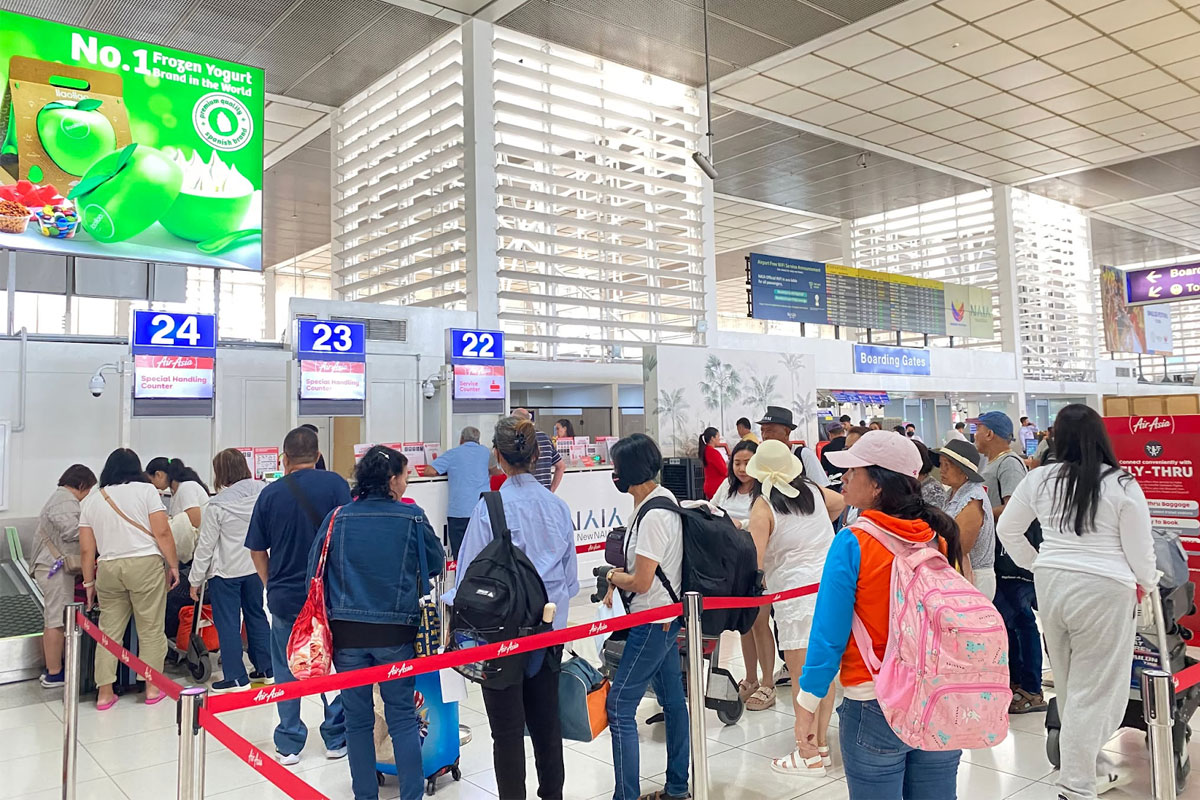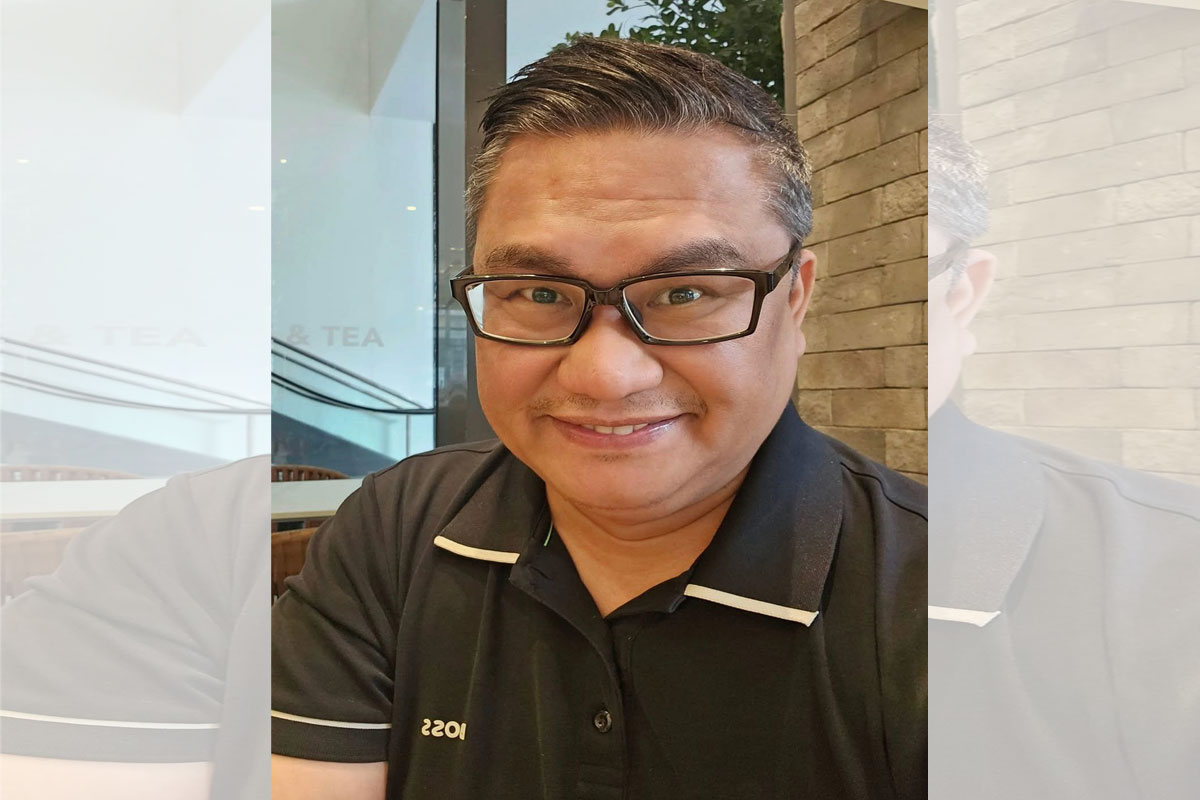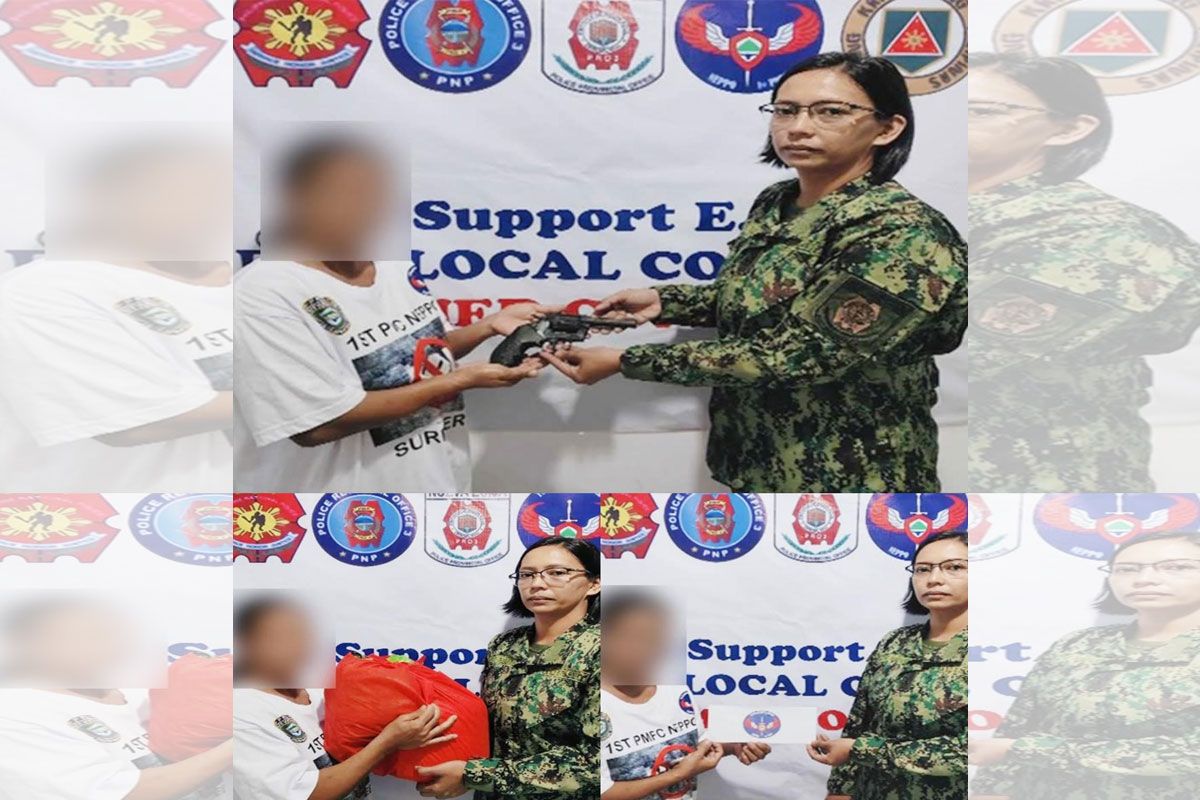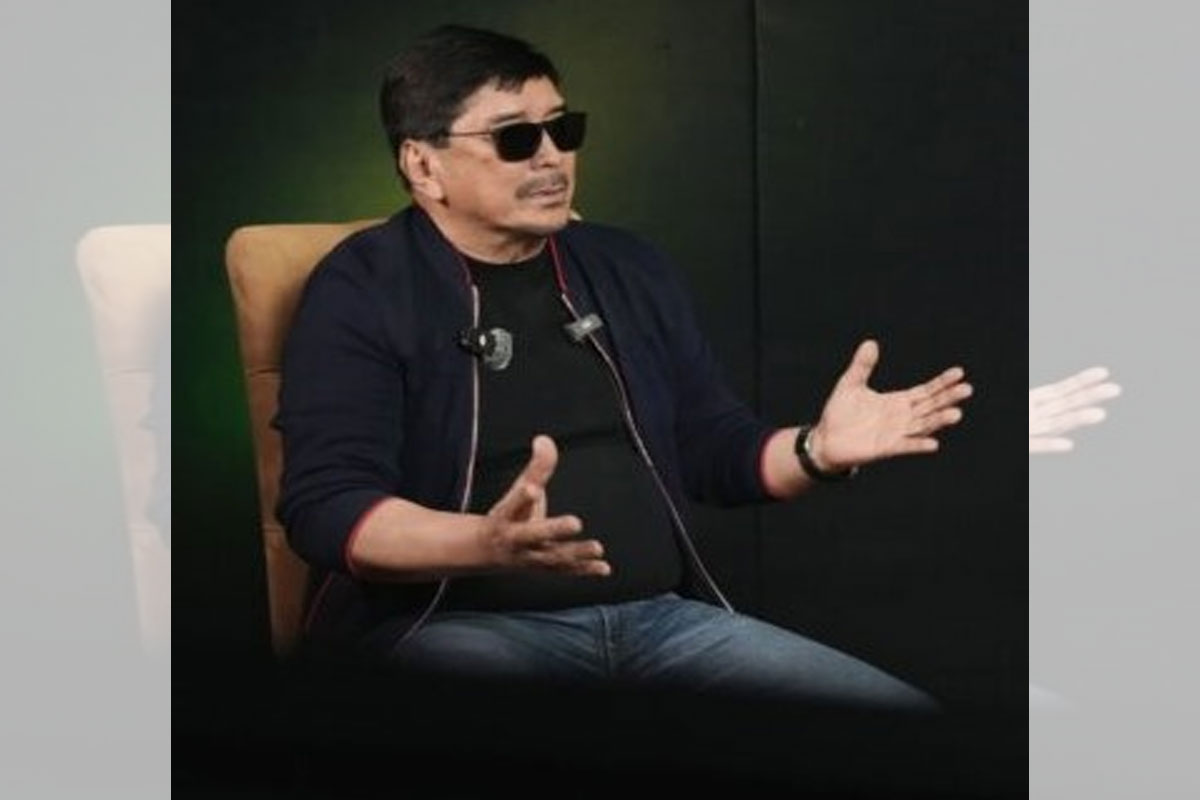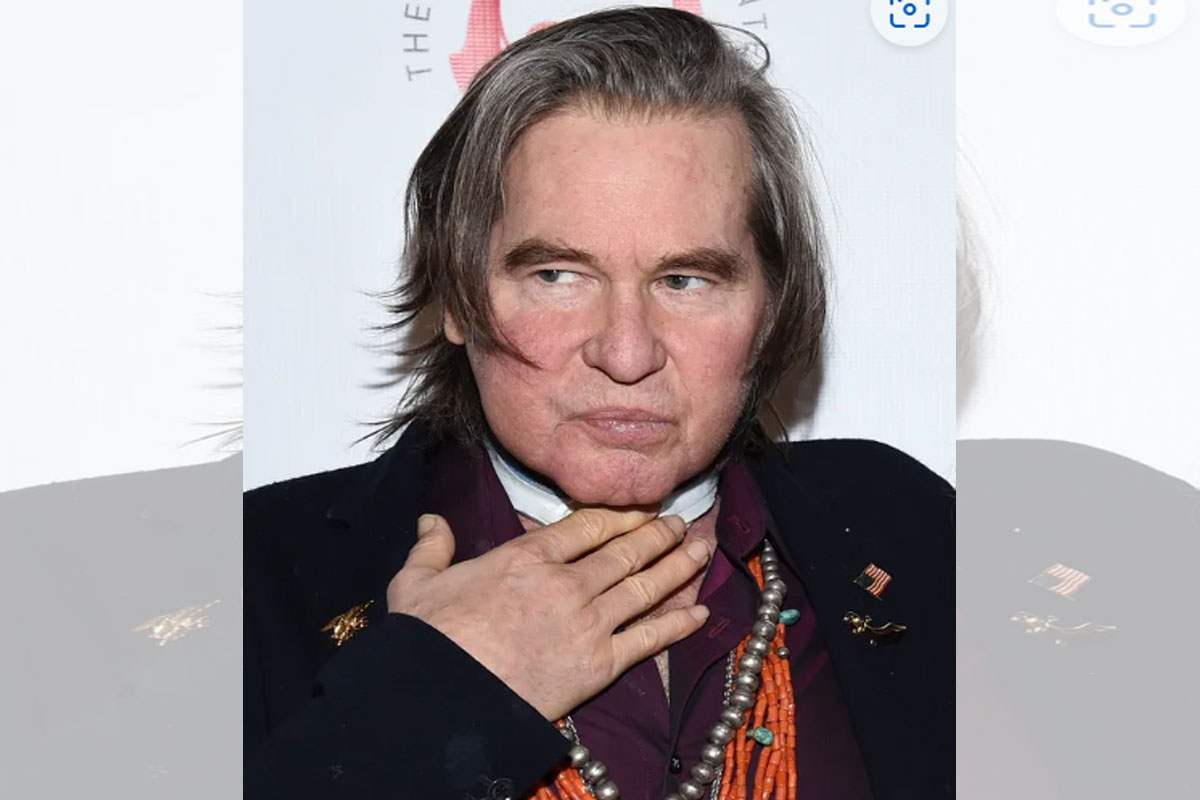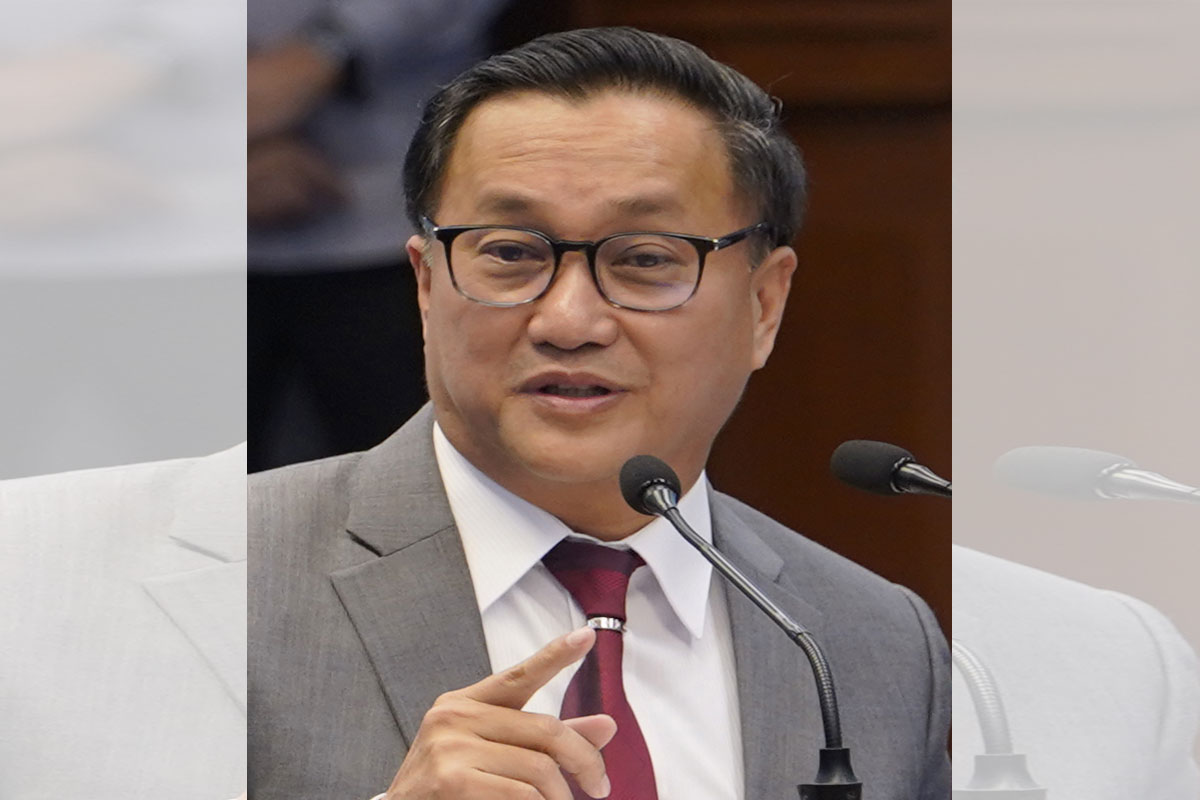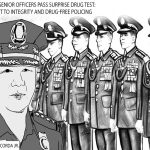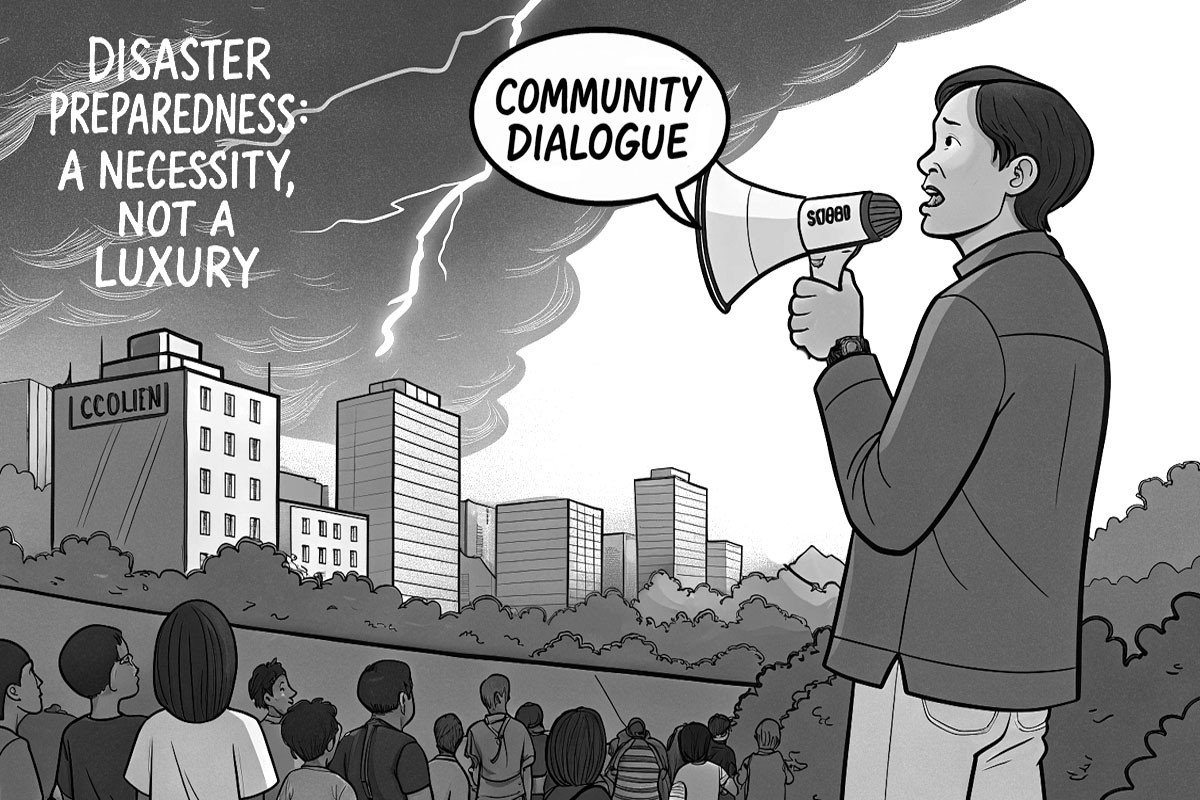
PNP cites value of cultural sensitivity among its personnel
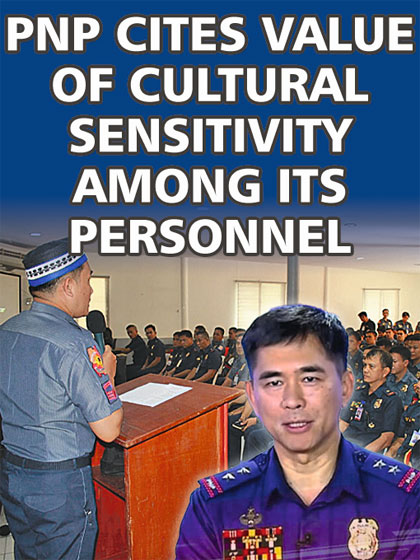 THE Philippine National Police is pushing for the holding of seminars about Islamic cultural and religious sensitivity for its personnel amid its effort to bring much closer camaraderie among its Muslim and Christian personnel and prevent misunderstanding, the Journal Group learned yesterday.
THE Philippine National Police is pushing for the holding of seminars about Islamic cultural and religious sensitivity for its personnel amid its effort to bring much closer camaraderie among its Muslim and Christian personnel and prevent misunderstanding, the Journal Group learned yesterday.
PNP Director for Police-Community Relations Major Gen. Edgar Alan Okubo explained the need to further strengthen the education and training of all their personnel to bring awareness to the matter recently raised by Sen. Robinhood Padilla.
The matter is a very serious concern since the PNP is recruiting some 5,000 former Moro Islamic Liberation Front and Moro National Liberation Front combatants into the force.
Many Muslim police officers have brought honor and fame to the organization by performing good deeds and showing acts of gallantry in the line of duty.
A number of them have also been killed or wounded while going after armed drug traffickers and terrorists.
So far, 102 former MNLF and MILF members have already taken their oath of office and are now assigned in the Bangsamoro Administrative Region after passing the normal recruitment process.
PNP chief Gen. Benjamin Acorda, however, said they are also facing some challenges, some restrictions in recruiting at least 5,000 former MNLF and MILF to the national police force.
“There are some restrictions. First is the budget, 2nd is the number of the applicants to be screened,” he said.
Gen. Acorda said there are 400 former combatants out of some 1,000 who will take their oath of office.
However, he said that only 102 out of the 400 passed a rigid neuro-psychiatric test.
“Nevertheless, our recruitment process out there is continuing. Our cycle of recruitment is continuing and if there are applicants who will be able to pass our stringent qualification standards, they will be able to form part of the remaining 298 quota,” Gen. Acorda said.
So far, the PNP-DPCR director said that a two-day seminar on Islamic cultural and religious sensitivity is being conducted already by the PNP to raise awareness for cultural sensitivities among PNP personnel.
He added that they are proposing to include a subject on cultural insensitivity on all PNP training programs amid the fact that there may always be a Muslim Police Commissioned Officer or Non-Commissioned Officer in every PNP station, headquarters or office in Luzon, Visayas and Mindanao.
Last week, Sen. Padilla led a Senate hearing to help address purported complaints by Muslim members of the PNP when it comes to the discrimination issues including being served with non-halal food, specifically pork.
Halal food is any food or product prepared and handled according to Islamic Sharia law as interpreted in the Quran.
In general, halal food should have no trace of pork or alcohol and does not mix with haram (disallowed) products.
They include fruits and vegetables and animals which must be slaughtered by a Muslim who says a blessing and by hand, not by machine.
Okubo attended the public hearing of the Senate Committee on Cultural Communities and Muslim Affairs chaired by Sen. Padilla. Also present was Sen. Sherwin Gatchalian and other senior PNP officials.
Senate Resolution No. 743 directed Padilla’s committee to conduct an inquiry, in aid of legislation, into the plight of the local Muslim Community in light of the numerous acts and practices that disadvantage and undermine their religious beliefs, particularly in the observance of their dietary principles.
Some of the issues cited by Sen. Padilla during the hearing were the alleged discrimination incidents in the PNP.
Okubo told the senators that every PNP personnel receives a regular subsistence allowance included to their paycheck due to differences in shifts/duty.
Considering also that kitchen personnel or those designated to prepare food have limited knowledge on the proper way to prepare Halal foods, there is really a need to subject them to formal training.
Sen. Padilla seconded the need for proper education and training not only among PNP personnel but of all communities to uphold respect amongst all for the enjoyment of religious freedom.
He also called on the Commission on Human Rights thru Commissioner Faydah Dumapra to visit the PNP Custodial Center and conduct an assessment and evaluation on the food preparation system for the detainees.
Last October 9, three PNP Custodial Center detainees led by Feliciano Sulayao, a known sub-leader of the Abu Sayyaf Group, tried to bolt the maximum-security jail facility inside Camp Crame.
Two of his fellows, identified as Abu Sayyaf sub-leader Idang Susukan and Dawlah Islamiyah member Arnel Cabintoy, were shot dead by a tower guard when they pounced on a lone guard and stabbed him repeatedly.
Sulayao managed to reach the cell of De Lima and briefly held the senator hostage while holding a knife before the director of the PNP-HSS, Brigadier Gen. Mark D. Pespes, managed to shoot the hostage-taker dead.
There is also the story of Police Chief Master Sergeant Al-Rakib Aguell, the cop who killed two of his colleagues in Taguig after he was served with pork without his knowledge.
Infuriated, the suspect exchanged fire with Sgt. Heriberto Saguiped and wounded Corporal Alison Sindac, who died hours later.
PNP Human Rights Affairs Office acting chief Colonel Jerico O. Baldeo during a Senate hearing said that any discrimination on matters of culture and religion taking place in the police force will be investigated.
He added that if the situation warrants, the guilty party will be meted out penalties.
Sen. Gatchalian agreed that penalties should be imposed for violation involving the proper preparation of Halal foods and any discrimination on the free exercise of religion and practice of cultural beliefs.
When he was still the National Capital Region Police Office chief in 2021, General Debold M. Sinas commenced their cultural sensitivity training to help their personnel further understand and appreciate Muslim beliefs, culture, and traditions.
The official said there is a need to hold such activity on a regular basis, or even year-round, in cooperation with the National Commission for Muslim and the University of the Philippines’ Islamic Institute.


